The man, who fled civil war violence and has never met his son, ‘extraordinarily distressed’ by treatment and fears being detained indefinitely
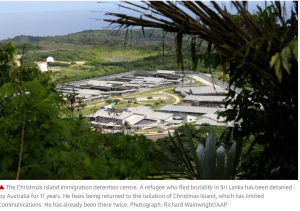
$l10n parameter must be an array. To pass arbitrary data to scripts, use the wp_add_inline_script() function instead. Please see Debugging in WordPress for more information. (This message was added in version 5.7.0.) in /home/filefaus/public_html/old/wp-includes/functions.php on line 5835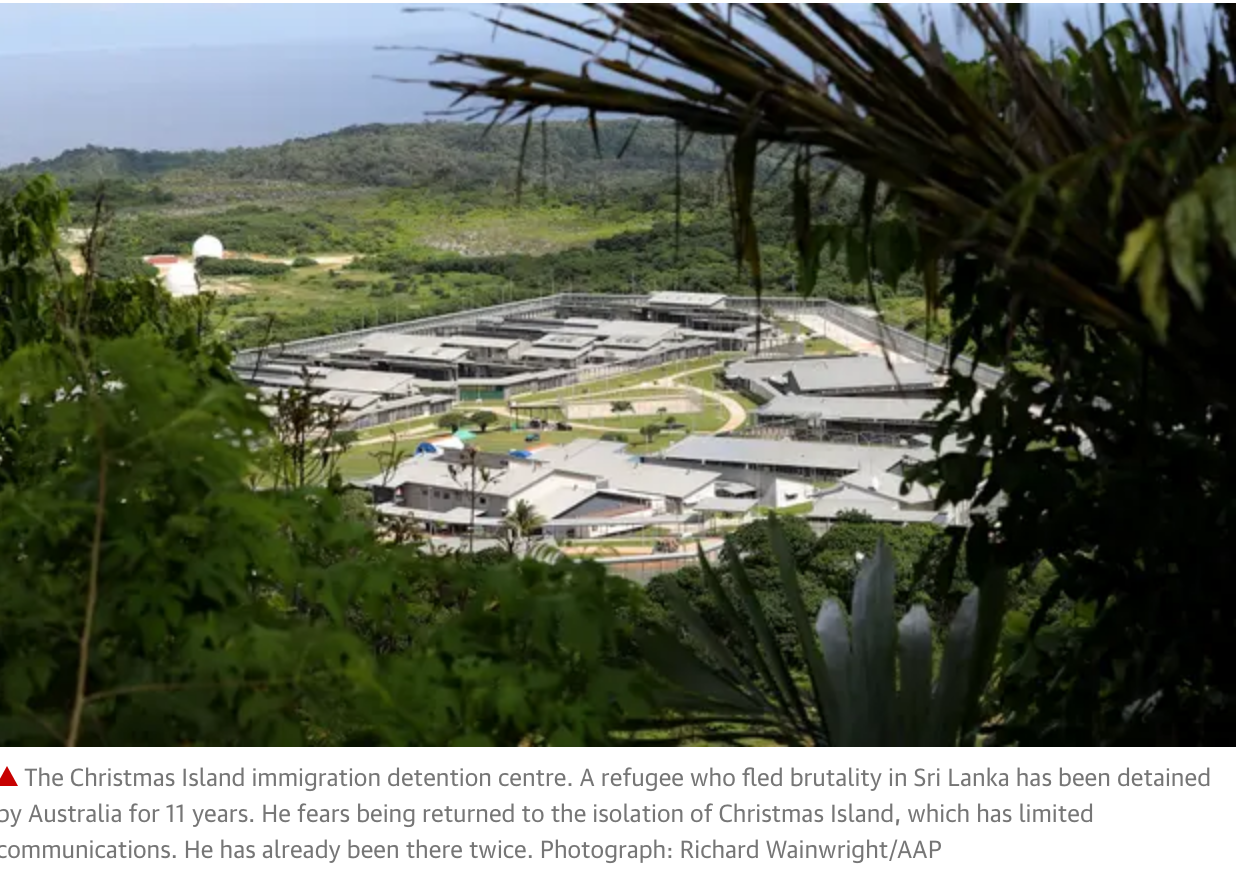
The man, who fled civil war violence and has never met his son, ‘extraordinarily distressed’ by treatment and fears being detained indefinitely


Call Josh Frydenberg and tell him that spending public money on gas is a disaster for our climate and a reckless recovery response. Frydenberg is the Treasurer and has decision making power about the Budget – calling him is a powerful way to have your voice heard and stop big bailouts for gas companies.
Scott Morrison’s Covid Commission is stacked with gas executives, and are spruiking new gas projects almost every day. Not only are there significant concerns around conflicts of interest, these new gas projects would be a disaster for our climate.
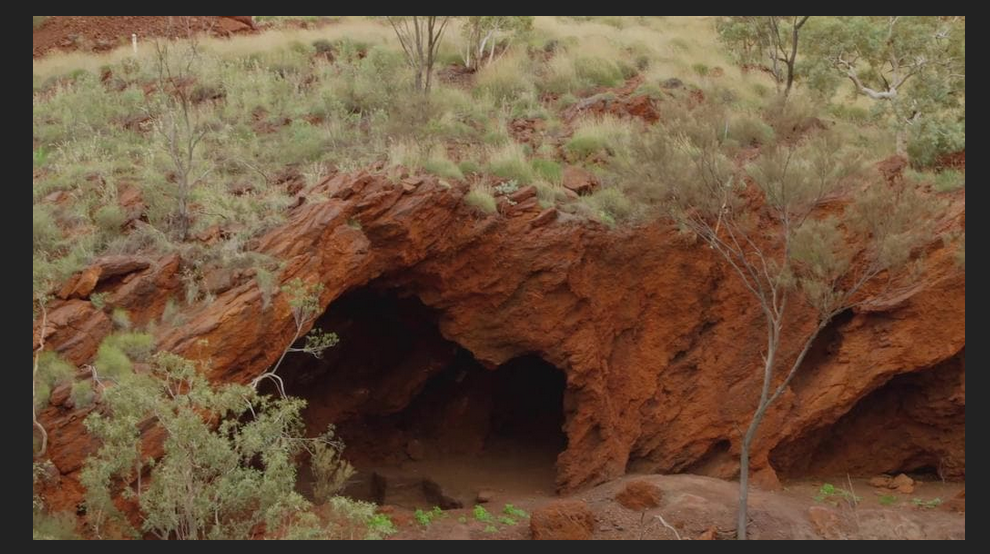
Indigenous leaders warn more sacred sites risk irreversible damage unless cultural protections are strengthened, following the departure of three Rio Tinto executives following the Juukan Gorge blast.
CEO Jean-Sebastien Jacques, iron ore division head Chris Salisbury and Corporate Affairs chief Simone Niven are exiting the embattled company as the fallout over the destruction of historic aboriginal rock shelters continues.
The First Nations Heritage Protection Alliance wants “robust” legislative reform across the country to protect cultural sites from damage as well as reform across the resources industry.
“The legislation that exists for Indigenous cultural heritage is focused almost solely on what developers and miners need to do to be able to displace impact,” NSW Aboriginal Land Council CEO James Christian said.
“It’s about what I, as a company, need to do to get the legal authority to be able to destroy or displace or just desecrate these sites.”
“We’ve got it wrong. It should be focused on protection.”
Jamie Lowe, CEO of the National Native Title Council, told SBS News the scandal is a sign “the paradigm needs to shift,” within the resources industry.
“The way that our heritage and our artefacts are treated, even when they’re given approval to be disturbed, is incredibly disrespectful,” he said.
“We need a dramatic cultural shift within these blue chips, multi-million-dollar companies.”
The ABC has reported mining companies Woodside Energy and Goldfields are reviewing their approvals for Australian mining sites, following the Juukan Gorge scandal.
But Mr Christian fears without stricter laws, more culturally significant sites will be damaged.
“Rio is just the tip of the iceberg,” he warned.
“And once you damage the site, you can’t undo it – you can’t unscramble that egg.”
The West Australian government is currently reviewing the Aboriginal Heritage Act following the Juukan Gorge disaster.
The Act as it stands offers basic levels of protection for Indigenous sites, making it an offence to damage an Aboriginal site.
But Section 18 of the legislation allows parties to apply for ministerial consent to use land in a way which could damage it, with immunity granted from prosecution.
Since the law was passed in 1972, there have been more than 3330 applications for consent to potentially damage sites, and at least 914 applications have been approved.
There have been just six prosecutions for damages to Indigenous sites since the law was enacted.
“In Western Australia, the protections are very low,” Barrister John Southalan, Adjunct Professor at the University of Western Australia said.
“It’s essentially referred to as an approval process, that’s how its largely characterised and seen in Western Australia.”
Mr Southalan said attitudes to protecting cultural sites in Australia are increasingly out of step compared to overseas.
For over a decade, The International Council of Mining and Metals has encouraged mining companies to gain the consent and support of Indigenous peoples before undertaking projects on traditionally owned land.
“In the more progressive parts of the industry, there is an acceptance that for areas of great significance and impact, if you don’t get the consent, then you don’t impact that,” Mr Southalan said.
“And that’s just not something we’re seeing Australia.”
Additional reporting: Camille Bianchi

 Popular disquiet ignored
Popular disquiet ignored L’inquietudine popolare ignorata
L’inquietudine popolare ignorata

Don’t miss this unique opportunity to hear BDS co-founder Omar Barghouti in discussion with key First Nations and Palestinian Australian speakers on the shared experience of dispossession, state-based discrimination and racism and how to counter it.
Panellists
Omar Barghouti – Palestinian writer and co founder, Boycott Divestment and Sanctions
Amy McQuire – Darumbal and South Sea Islander journalist and academic
Dr Randa Abdel-Fattah – Palestinian author, lawyer and activist
Professor Tony Birch – Indigenous Australian author, academic and activist
Hiba Farra, moderator – Palestinian lawyer and activist.
ZOOM Forum – Register Here for Link – https://bdsaustralia.net.au/black-palestinian-forum/


FILEF and the Australia-West Papua Association invite you to special film event online on the struggle of West Papuans for their independence and freedom from Indonesian occupation of their land.
Watch an update on the current situation by Veronica Korman, indonesian lawyer defending incarcerated West Papuan activists and herself an exile following trumped up charges by the Indonesian police, and Ronny Kareni, a representative in Australia of the United Liberation Movement for West Papua.
Following the speakers’ update you can watch the acclaimed Film Australia documentary LAND OF THE MORNING STAR by journalist Mark Worth, broadcast by the ABC. The film features rare archival film and eyewitness accounts.
View interviews and film here
The event starts on THURSDAY 30th of JULY 2020 and the film will stay on YouTube after the event.
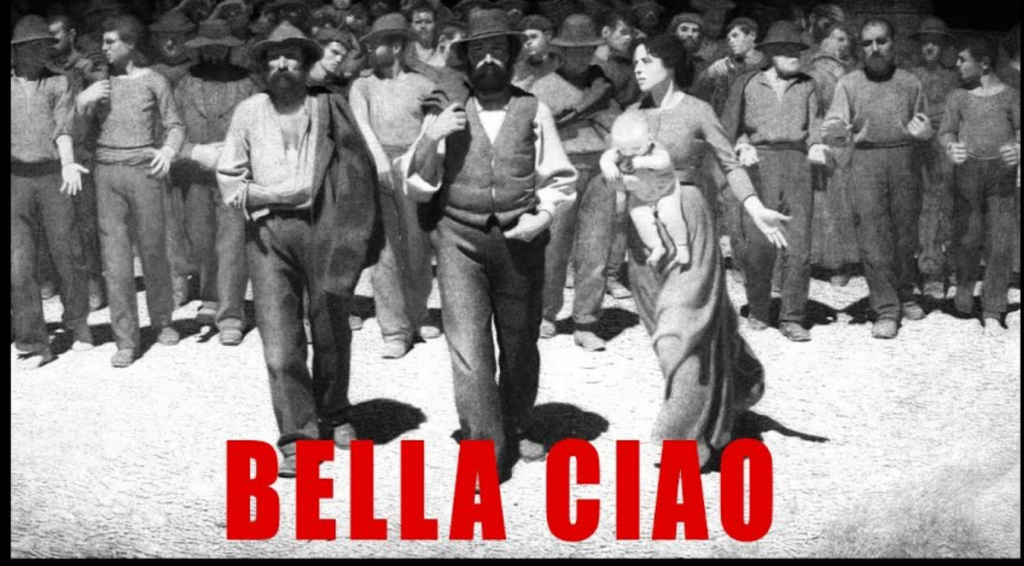


1. Sant Antonio
2. Velo Nero
3. Sebben che siamo donne
4.
5.
6.
7.
8.
9.
10.
11.
12.
13.
14.
15.
16.
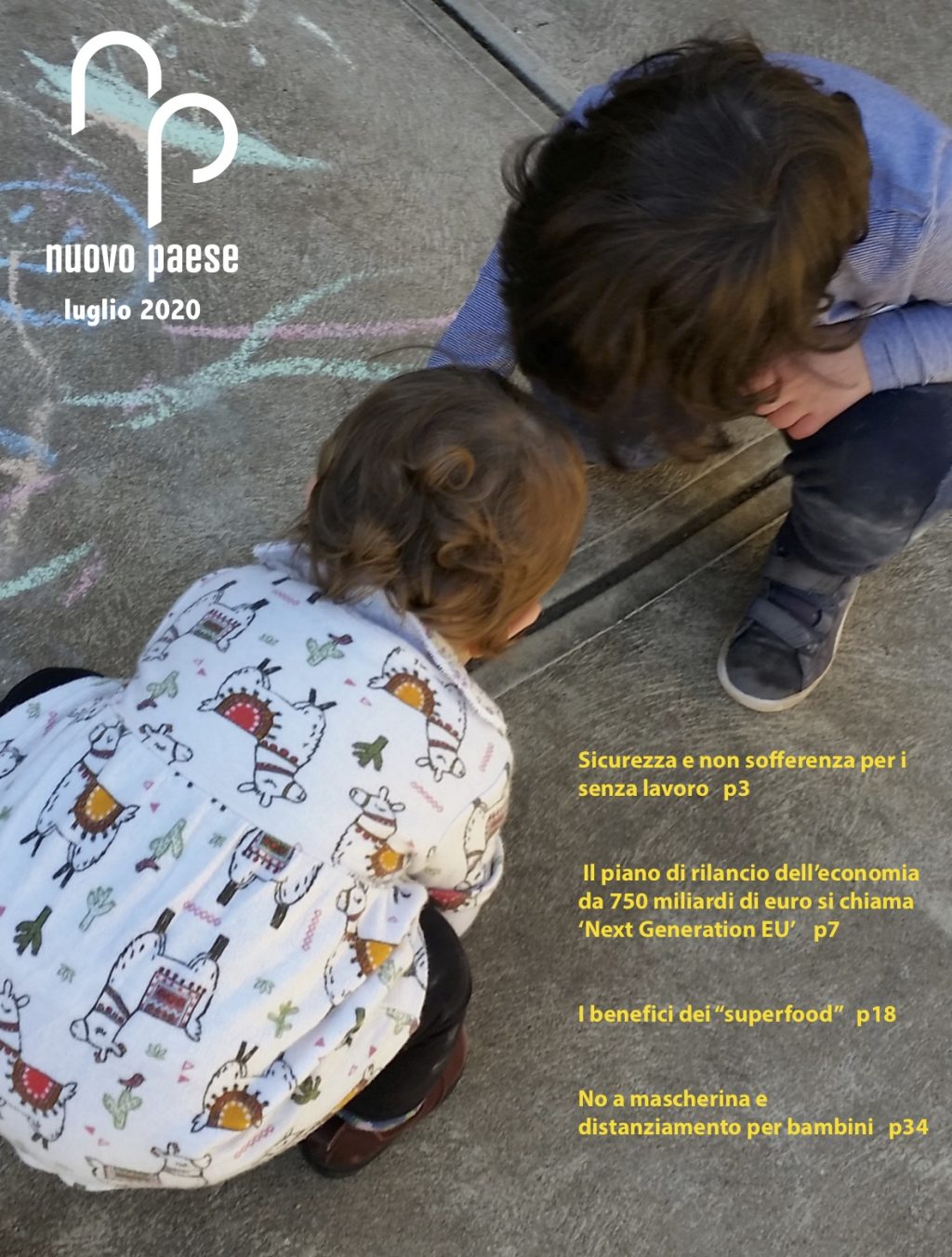
 NP luglio 2020/July 2020
NP luglio 2020/July 2020Che il lavoro ci sia per chi vuole lavorare è un luogo comune ma, a pensarci meglio, è intrinseco che una persona disperata farebbe qualsiasi lavoro.Questo maschera le tensioni insite nella natura stessa del lavoro, a partire dal rapporto storico tra dipendente e datore, per cui, spesso, lavori di alto livello e gratificanti ottengono buoni salari e condizioni, a discapito di quelli di basso livello.
EDITORIAL

A common accusation is that there is work available if people want it but, if examined, its inherent suggestion is that a person would do the work if desperate.This masks tensions in the nature of work, from the historical relationship between employee and employer, which in part is the reason why, often, high status and rewarding jobs get good pay and conditions and low status jobs don’t.

As early as next week, Israel proposes to forcibly annex up to a third of the Palestinian West Bank, with Prime Minister Benjamin Netanyahu calling it “another glorious chapter in the history of Zionism”. Israel’s incendiary move, paved by US President Donald Trump’s “peace” plan, has provoked near-universal condemnation.
It has been deplored as a grave violation of international law by the UK’s Tory Prime Minister, most of Europe and the developing world, over 250 leading international lawyers, and an unprecedented 50 independent UN experts, and by 1000 European parliamentarians. Europe is considering sanctions.

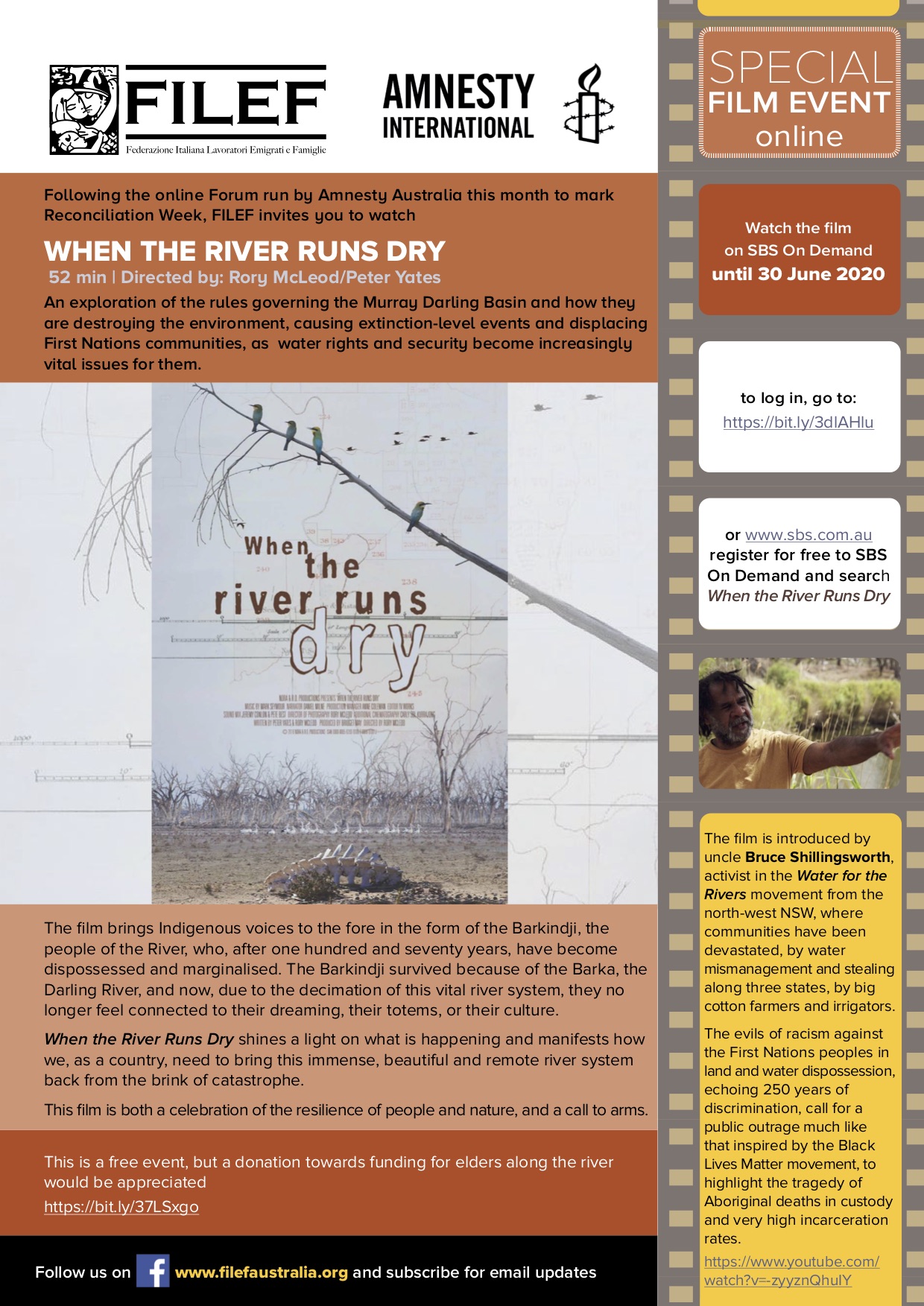
Following the online Forum run by Amnesty Australia this month to mark Reconciliation Week, FILEF invites you to watch
52 min | Directed by: Rory McLeod/Peter Yates – Streaming online at SBS on Demand until June 30th
An exploration of the rules governing the Murray Darling Basin and how they are destroying the environment, causing extinction-level events and displacing First Nations communities, as water rights and security become increasingly vital issues for them.
 The film brings Indigenous voices to the fore in the form of the Barkindji, the people of the River, who, after one hundred and seventy years, have become dispossessed and marginalised. The Barkindji survived because of the Baaka, the Darling River, and now, due to the decimation of this vital river system, they no longer feel connected to their dreaming, their totems, or their culture.
The film brings Indigenous voices to the fore in the form of the Barkindji, the people of the River, who, after one hundred and seventy years, have become dispossessed and marginalised. The Barkindji survived because of the Baaka, the Darling River, and now, due to the decimation of this vital river system, they no longer feel connected to their dreaming, their totems, or their culture.
When the River Runs Dry shines a light on what is happening and manifests how we, as a country, need to bring this immense, beautiful and remote river system back from the brink of catastrophe.
This film is both a celebration of the resilience of people and nature, and a call to arms.
The film is introduced by uncle Bruce Shillingsworth (see interview here) activist in the Water for the Rivers movement from the north-west NSW, where communities have been devastated, by water mismanagement and stealing along three states, by big cotton farmers and irrigators.
The evils of racism against the First Nations peoples in land and water dispossession, echoing 250 years of discrimination, call for a public outrage much like that inspired by the Black Lives Matter movement, to highlight the tragedy of Aboriginal deaths in custody and very high incarceration rates.
This is a free event, but a donation towards funding for elders along the river would be appreciated.
We need your help urgently! We’ve collected more than 2 dozen much needed care beds that will assist those with medical needs along the Baaka (Barwon Darling River). These funds will assist in transportation of the beds from Sydney to patients in remote/isolated communities such as Brewarrina, Wilcannia, Walgett and Bourke (including Enngonia). Many people in these communities have medical conditions that restrict their mobility but they don’t have access to therapeutic bedding. These beds are medical grade, motorised, heavy duty and durable which include hospital grade mattresses. We are pushing for the delivery of these beds by early July!
https://bit.ly/37LSxgo
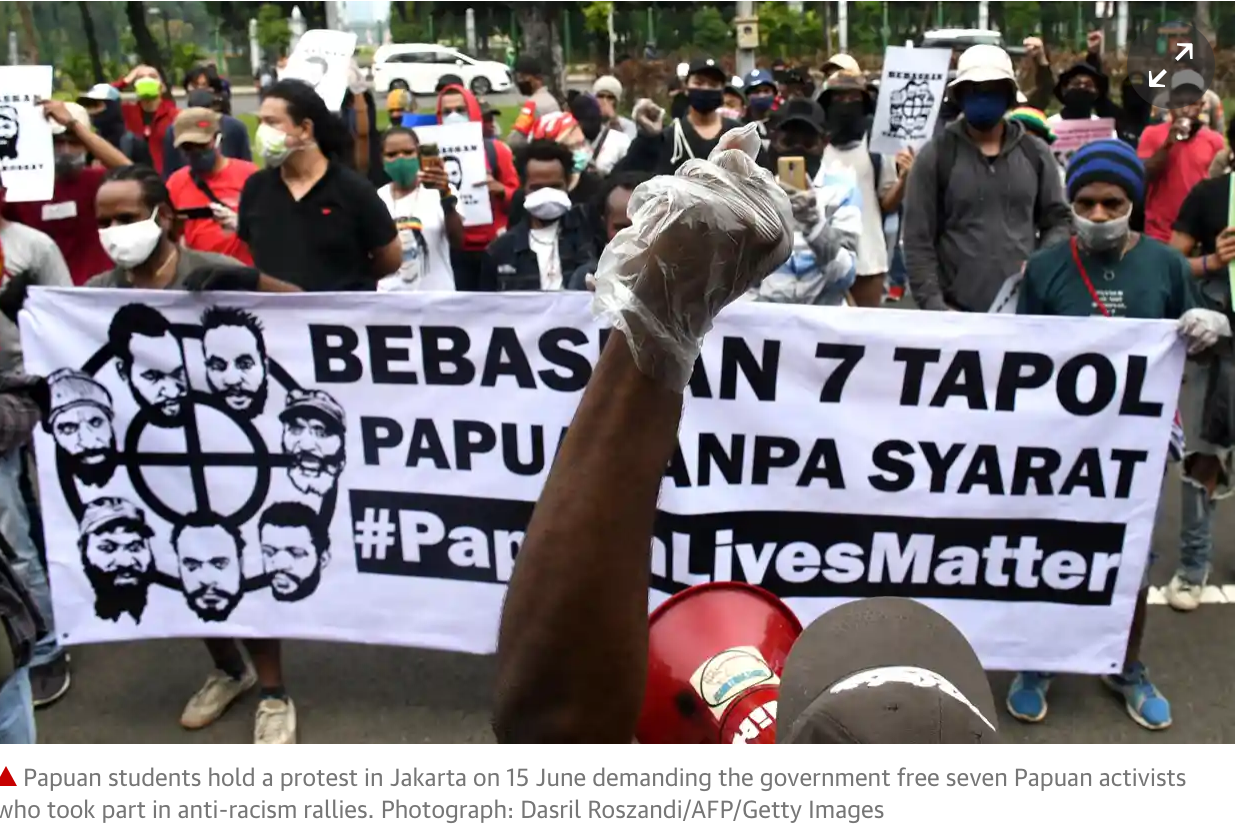
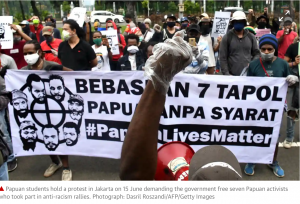
Seven Papuan activists have been found guilty of treason and sentenced to up to 11 months in prison for their involvement in anti-racism rallies in West Papua last year, a verdict that has been condemned by human rights groups.
The men, known as the “Balikpapan Seven”, were convicted over protests that were sparked last summer by a viral video in which Papuan students were called “monkeys” and subjected to other racist taunts. Thousands of people took part in the rallies, some of which turned violent.
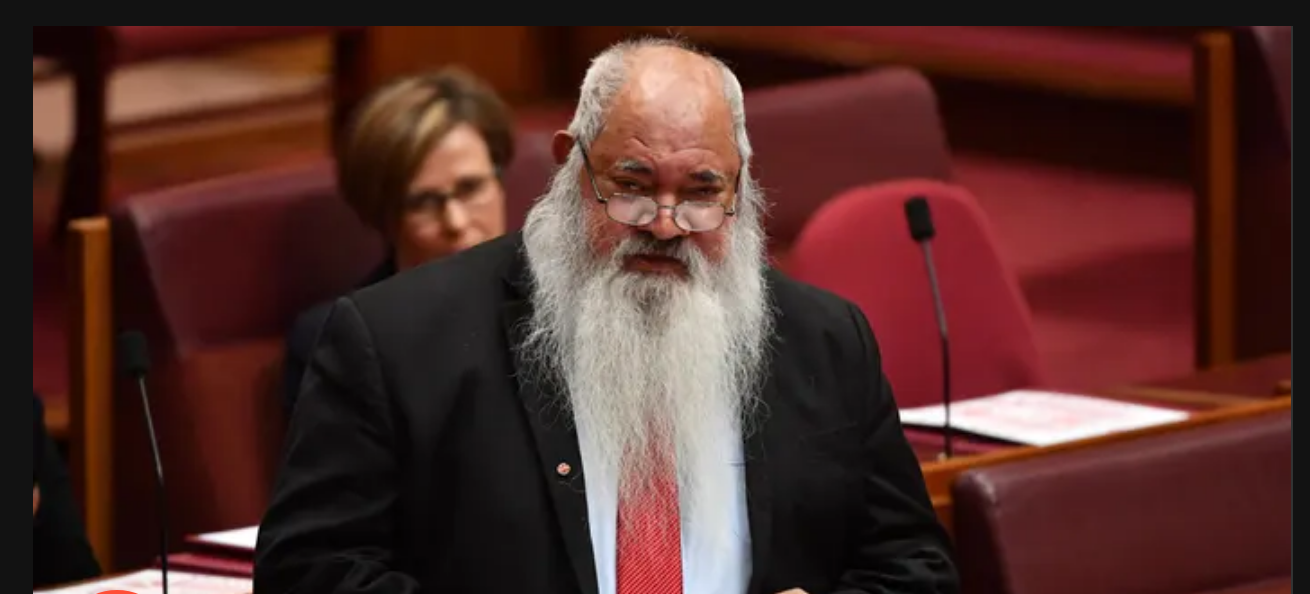
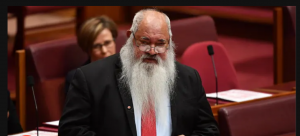
West Australian senator Patrick Dodson – a commissioner at the 1991 royal commission into Aboriginal deaths in custody – said racism explained the deep distrust indigenous people had for Australia’s institutions. “Systematically, First Nations peoples have been treated as inferior, as deficient and tolerated through condescension,” – Senator Dodson.

Occorre tuttavia prestare maggiore attenzione e sensibilità quando i governi privano le persone delle libertà fondamentali, anche quando si sostiene che questo venga fatto in nome del bene pubblico.Le persone stanno tollerando nuove forme di sorveglianza, che si sommano alle molte invasioni, spesso autorizzate a far parte della vita commerciale. Si pensi ad esempio alla raccolta e il monitoraggio delle transazioni dei consumatori.
Human fear is a protective mechanism that activates the fight-or-flight responses to perceived threats to survival.The current pandemic threat has presented many complex challenges and exposed some profound social and economic shortcomings, not the least in adequate health services and equipment. However, as these are discussed and dealt with once the spectre of this virus is over it may be worth examining the use of fear and its individual and collective impact.
Threats like COVID-19 or any other provocative community threat must not be used to heighten community anxiety to the point that human fear becomes a fear of humans. Governments must not use fear as the basis of their authority, which always must come from the people.To do otherwise is a descent into authoritarianism.

A series of online talks by art critic:
Costantino D’Orazio28th of May – 6th of August
The Italian Cultural Institute in Sydney and its counterpart in Melbourne are offering a series of lectures by Costantino D’Orazio, one of the most famous Italian art critics. The three conferences, which will take place between the 28th of May and the 6th of August, will analyse the work of artists such as Caravaggio, Michelangelo, Bernini and Balla, giving us an insight into less known aspects of these great painters, thanks to the expertise and great communication skills of our distinguished guest.
This webinar will be held online via Zoom and you can book by clicking on this link:
Caravaggio: truth and myths of a legendary painter
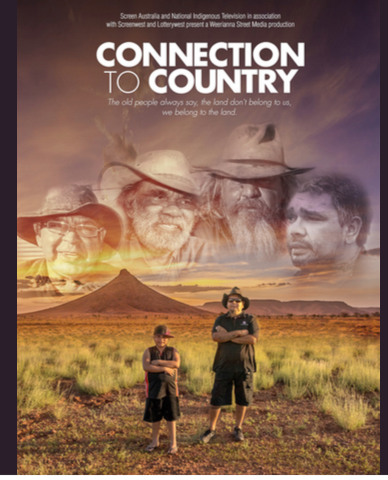
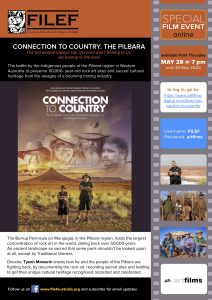
The old people always say, the land don’t belong to us, we belong to the land
The battle by the Indigenous people of the Pilbara region in Western Australia to preserve 50,000- year-old rock art sites and sacred cultural heritage from the ravages of a booming mining industry.
The Burrup Peninsula (or Murujuga), in the Pilbara region, holds the largest concentration of rock art in the world, dating back over 50,000 years.
An ancient landscape so sacred that some parts shouldn’t be looked upon at all, except by Traditional Owners.